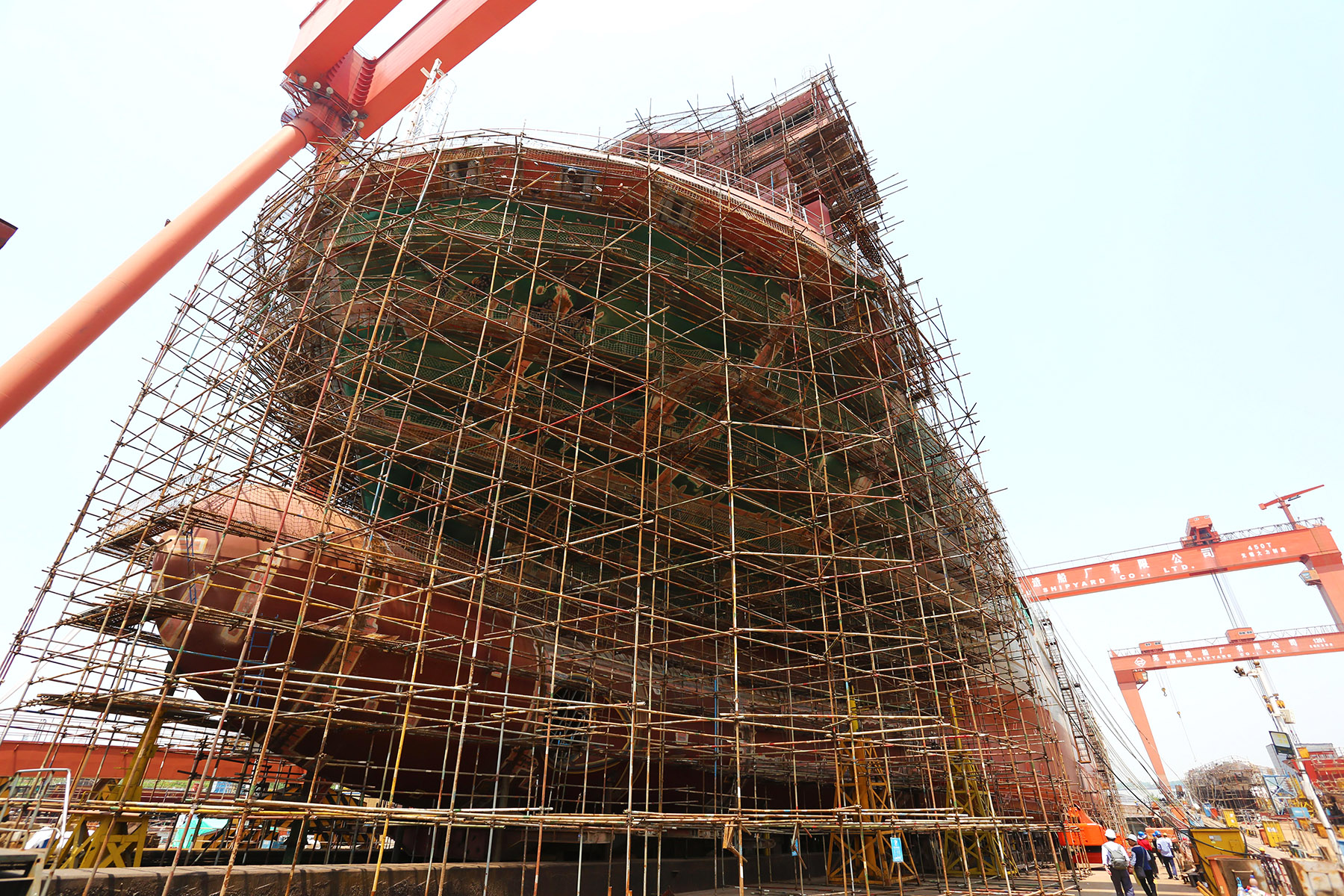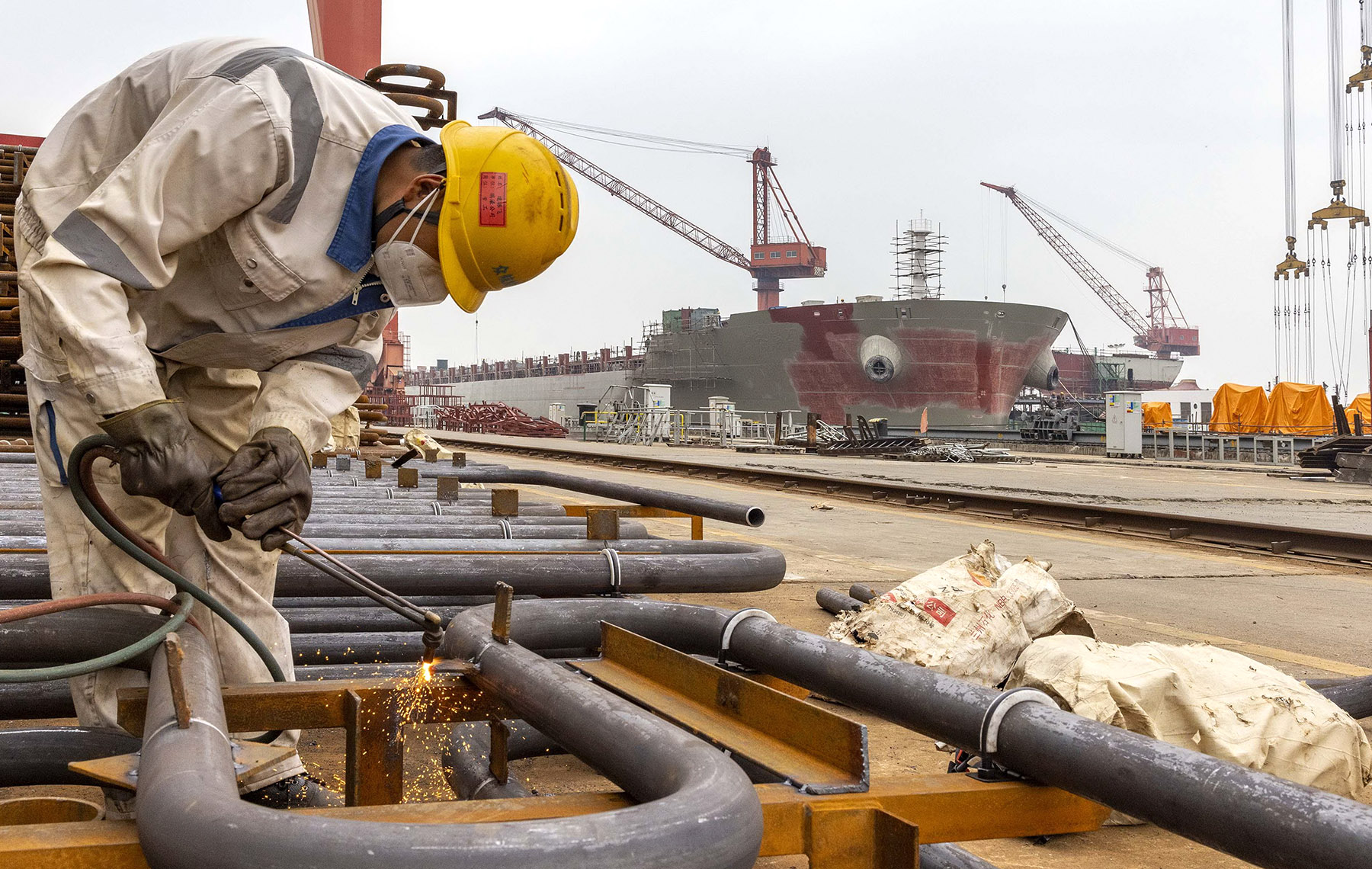Growth momentum of Chinese shipyards will remain competitive and support nation's exports in second half, experts say

China's shipbuilding industry will retain its top spot globally this year, by capitalizing on robust industrial chain capabilities and prioritizing advancements in intelligent and green technical solutions, analysts and shipbuilders said on Tuesday.
Despite the United States launching a Section 301 investigation into China's shipbuilding business earlier this year, they said the growth momentum of Chinese shipyards will remain competitive and support China's exports in the second half.
READ MORE: Surge in ship orders ups China's foreign trade
This is because their strength stems from a combination of factors that cannot be constrained merely by tariffs or other trade remedy measures.
Chinese shipyards saw new orders surge 43.9 percent year-on-year to 54.22 million deadweight tons in the first half of the year, accounting for 74.7 percent of the global total, according to data released by the Ministry of Industry and Information Technology on Tuesday.
Meanwhile, the country's shipbuilding output reached 25.02 million dwt, up 18.4 percent on a yearly basis, making up 55 percent of the world's total.
Among the world's 18 major ship types, such as bulk ships and oil tankers, China ranked first globally in new orders for 14 of them during the January-June period, statistics from the Beijing-based China Association of the National Shipbuilding Industry (CANSI) showed.
The growth highlights the resilience and adaptability of Chinese manufacturers in the face of external challenges. It also reflects the insufficient global high-tech shipbuilding capacity resulting from structural changes on the demand side, said Li Yanqing, CANSI's secretary-general.
The global shipping market has witnessed a significant increase in demand for fleet renewal. The rise in shipping costs due to various economic and political factors worldwide has also led to a notable increase in new shipbuilding orders, said Peng Bo, a researcher specializing in foreign trade at the Chinese Academy of International Trade and Economic Cooperation in Beijing.

Han Jianfeng, president of the China unit of Wartsila Corp, a Finnish ship engine manufacturer, said current demand for orders is mainly concentrated on large vessels with advanced technical requirements, but there is a severe shortage of global production capacity for high-end vessels like mega dual fuel-powered container ships and liquefied natural gas carriers.
China is among the few countries globally that possess both advanced technology and large-scale shipbuilding capabilities. The country's well-developed industrial chains provide its shipbuilding companies with a competitive edge in cost control and production efficiency.
China's ship exports amounted to $20.67 billion between January and June, soaring 85.2 percent year-onyear, according to CANSI data.
On a monthly basis, the average monthly export value was $3.4 billion, with a year-on-year growth rate consistently above 30 percent. This growth rate ranked first among the key electromechanical product exports from China during that period.
ALSO READ: China to retain lead in global shipbuilding
Chinese shipyards, including Liaoning province-based Dalian Shipbuilding Industry Co and Shanghai-based Hudong-Zhonghua Shipbuilding (Group) Co, have already upgraded their production capacity to accommodate high-tech vessel types, aligning with evolving market demand.
For instance, Shanghai Waigaoqiao Shipbuilding Co has stepped up the research and development of ultra-large as well as medium-sized and small cruise ships, after delivering China's first domestically built large cruise ship to its owner last year.
Zhou Jinglei, vice-president of Taizhou Sanfu Ship Engineering Co, a Taizhou, Jiangsu province-based shipyard, said the company currently has 45 orders in its backlog, with production planned through 2027.
"We have increased our investment in technological innovation to develop high value-added ships equipped with advanced methanol and LNG dual-fuel power systems, while maintaining our advantage in building multipurpose heavy lift vessels," said Zhou.
Dual fuel-powered container vessels can significantly reduce carbon, nitrogen oxide and sulfur emissions compared to traditional fuel-powered containerships, he added.


